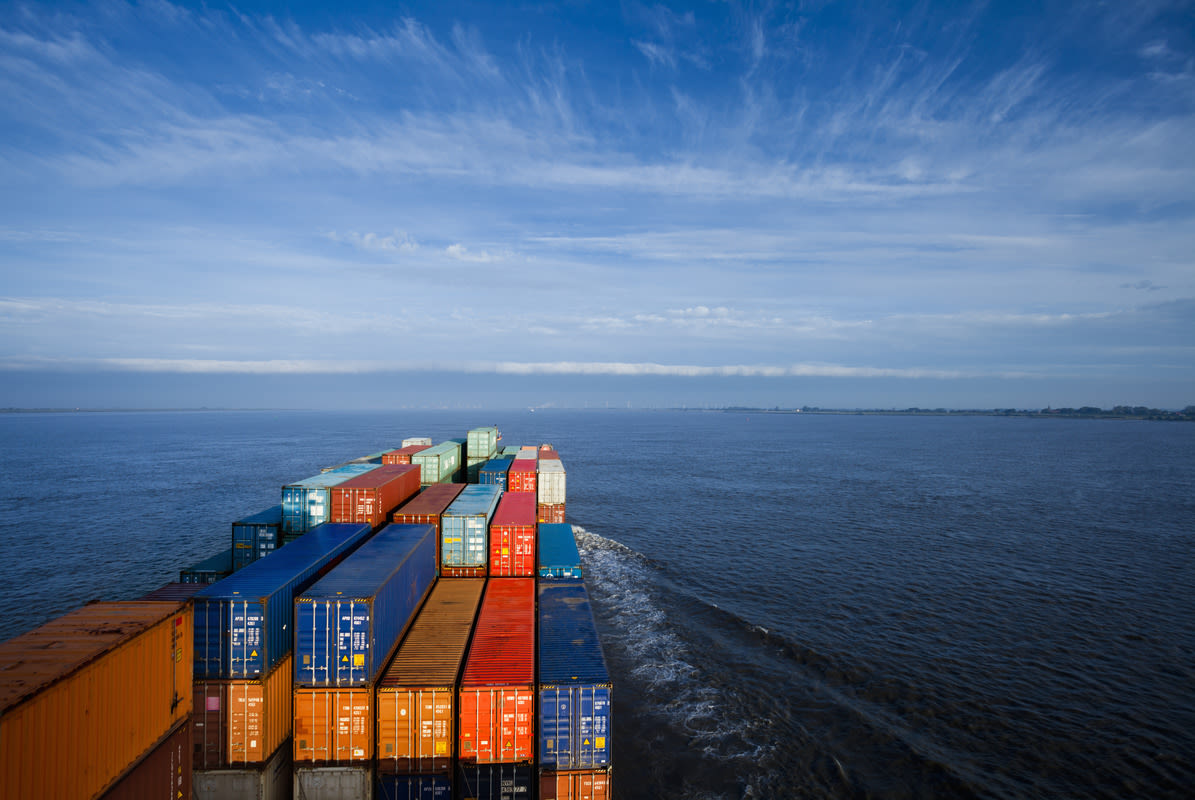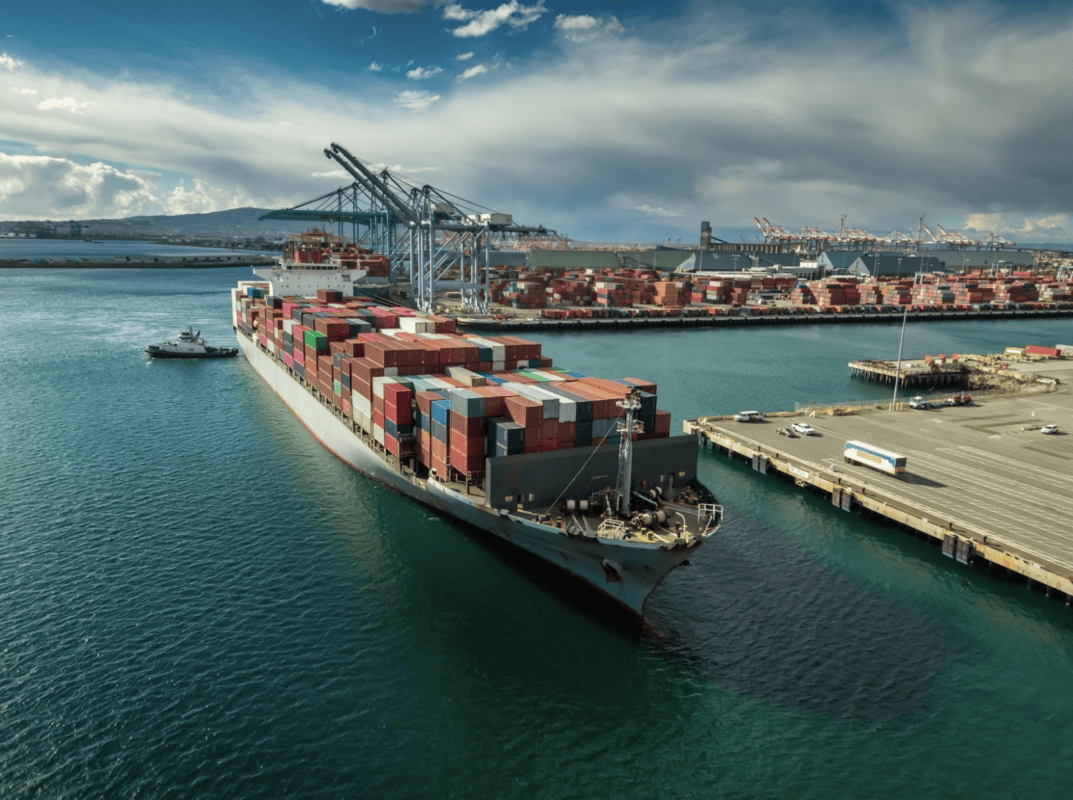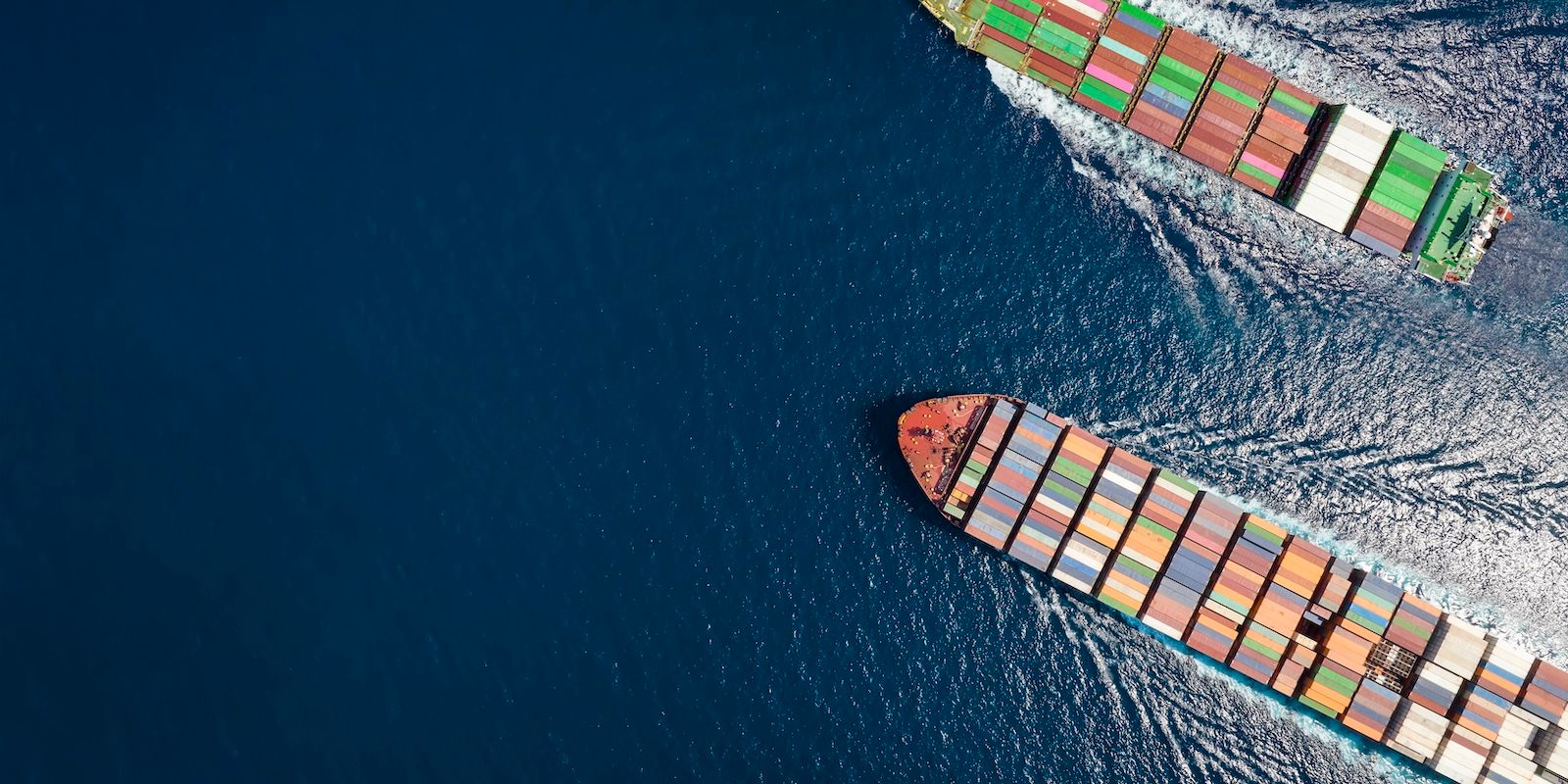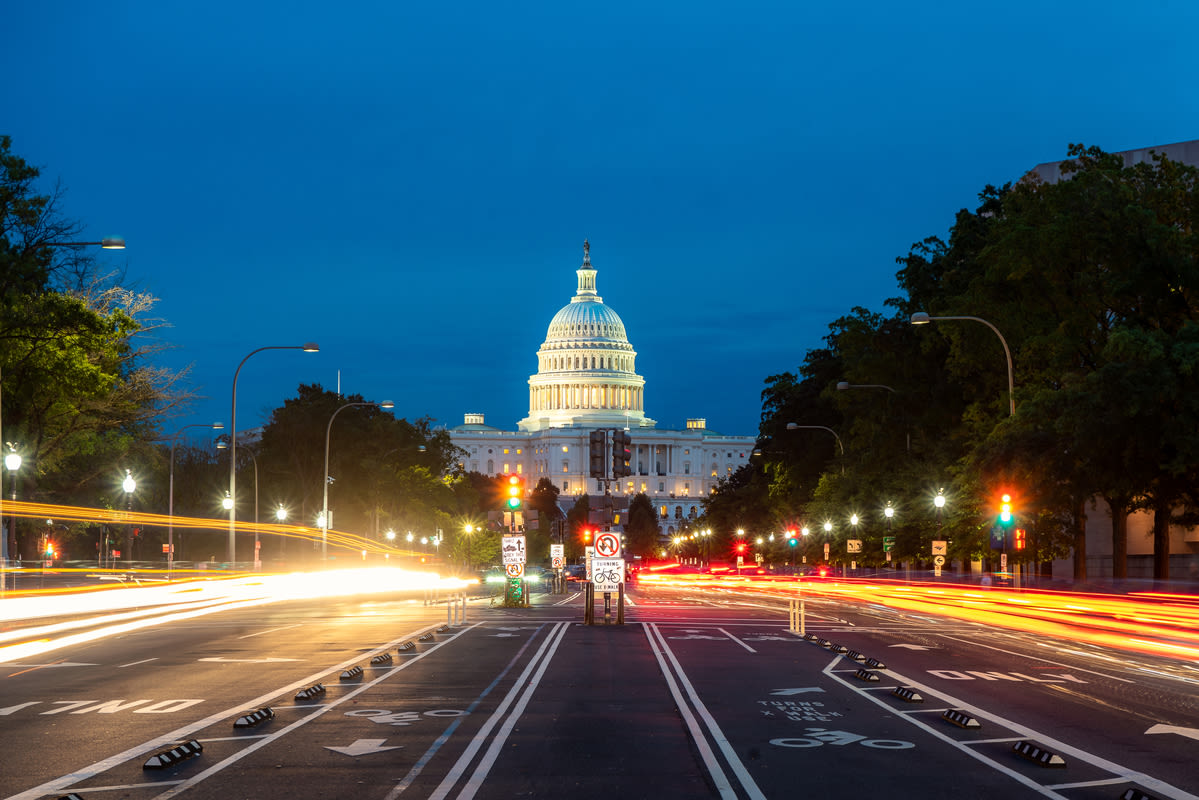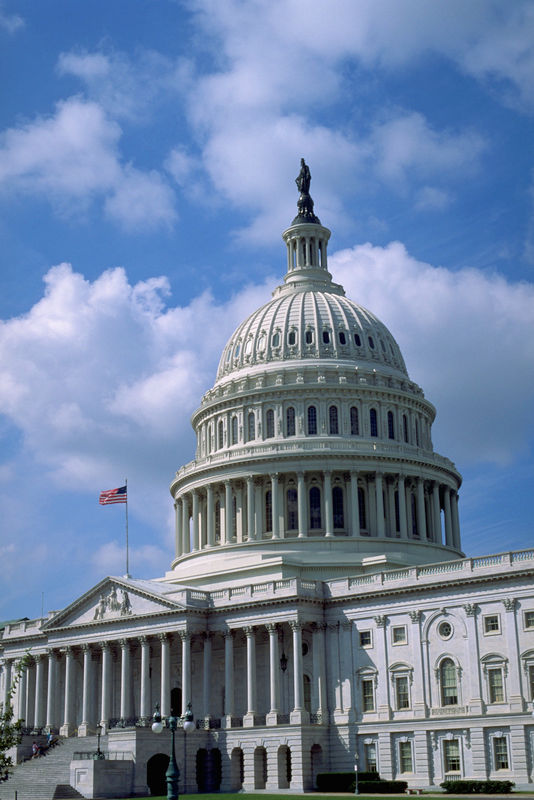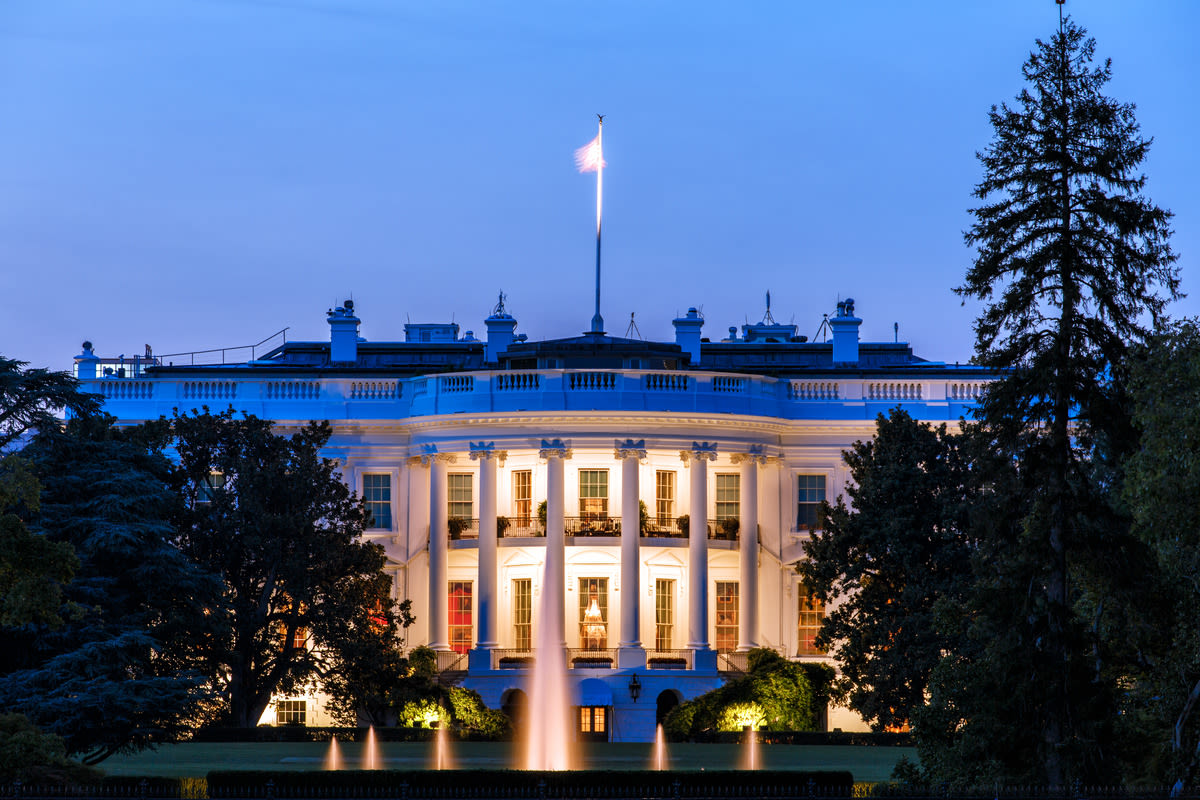
February 11, 2026
Live Updates: Trump Administration Tariffs, Trade Policy Changes, and Impacts on Global Supply Chains
Tags:

February 11, 2026
This live blog contains all updates from October 30, 2025 onwards. Find our updates published prior to that date here:
- Late October of 2025
- Mid-June to mid-October of 2025
- Mid-March to mid-June of 2025
- Updates before mid-March of 2025 (including our original blog on the 2024 election)
Updated February 20, 2026:
This morning, the Supreme Court struck down the Trump administration's IEEPA tariffs. We've broken down the ruling here, along with insight into possible refunds, President Trump's upcoming 10% global tariff, and Flexport's strategic guidance for customers.
Updated February 11, 2026:
Today, U.S. Senators Sheldon Whitehouse (D-RI) and Bill Cassidy (R-LA) introduced the Last Sale Valuation Act, under which the valuation of an imported good would be required to reflect the value of its last transaction before exportation to the United States. The legislation aims to promote domestic manufacturing and “close loopholes that give multinational corporations unfair advantages over small businesses.”
The proposed law, if implemented, would effectively eliminate the First Sale rule. First Sale enables importers to determine an imported good’s transaction value based on the first transaction in a multi-tiered transaction (e.g., the price an intermediary pays a foreign factory). Because the price of the product’s first sale is often lower than the price paid by the importer later on in the supply chain, the First Sale rule enables a lower duty amount upon entry into the U.S.
If signed into law, the Last Sale Valuation Act could mean higher duties for importers, new compliance requirements, sourcing shifts, and landed cost implications.
Updated February 10, 2026:
The U.S. and Bangladesh have reached a trade agreement. Provisions include:
- The U.S. will reduce the reciprocal tariff rate on Bangladesh from 20% to 19%.
- Bangladeshi goods covered under Annex III of Executive Order 14346, which President Trump issued last September, will be exempt from reciprocal tariffs.
- The U.S. will exempt a yet-to-be-determined quota of Bangladeshi textile and apparel products from reciprocal tariffs.
- Bangladesh will reduce or eliminate certain non-tariff barriers on U.S. vehicles, medical devices and pharmaceuticals, agricultural products, remanufactured goods, and other exports.
- Bangladesh commits to purchasing about $3.5 billion in wheat, soy, cotton, and other U.S. agricultural products.
- Bangladesh commits to purchasing about $15 billion in U.S. energy products over 15 years.
It is unclear exactly when the trade agreement will take effect.
Separately, the EU Parliament came to a consensus today on moving forward with the trade deal that it reached with the U.S. last summer. EU lawmakers may vote on proceeding with the deal as soon as February 24. The EU Parliament has proposed a number of modifications and additions to the deal, including:
- The EU will re-assess the deal six months after it takes effect, should the U.S. fail to reduce its 50% tariff on EU steel derivative products to a baseline of 15% by that date.
- The EU will introduce a sunset clause that will void the trade agreement in March of 2028, at which point the EU and the U.S. must extend or re-negotiate the deal.
- The EU will also enforce a suspension clause, which will suspend the deal if the U.S. undermines or otherwise acts against European territorial integrity. EU lawmakers introduced this proposal shortly after President Trump announced and later walked back plans to impose a 10% tariff on eight European trading partners due to their opposition to U.S. control of Greenland.
While the U.S. implemented a minimum total tariff of 15% on EU goods last August, other provisions of the trade agreement have remained under EU legislative review.
Updated February 9, 2026:
On February 6, President Trump issued an executive order that lays the groundwork for an additional tariff on nations that “directly or indirectly purchase, import, or otherwise acquire any goods or services from Iran.”
- The order does not specify an exact duty rate, but cites President Trump’s previously announced 25% as an example.
- It remains unclear exactly which nations would be impacted by the potential duty. Per the order, the Secretary of Commerce and other Cabinet members will first identify all nations importing goods from Iran. Afterwards, if they determine that the U.S. should proceed with the duty, they will advise President Trump on a possible duty rate.
- Iran’s largest trading partner is China. In 2024, Iran imported about $17.8 billion in Chinese goods, while Iranian exports to China totaled $14.6 billion. China is also the biggest purchaser of Iranian oil, importing more than 80% of Iran’s shipped oil in 2025. Iran’s other major trading partners include Turkey, Pakistan, and India.
President Trump also issued an executive order that officially eliminates the additional 25% tariff on India imposed last August in response to the nation’s purchases of Russian oil, effective February 7 at 12:01 a.m. ET.
- With the oil-related tariff on India now eliminated, the U.S.’s total effective duty rate on India is currently 25%.
- As part of the trade agreement announced last week, the U.S. also agreed to reduce its reciprocal tariff rate on India from 25% to 18%. This would bring the total duty rate on India down to 18%, though it remains unclear when that reduced duty will take effect.
Finally, the U.S. and India have published an interim trade agreement framework that reinforces many of the trade deal terms announced earlier this week, including the yet-to-be-implemented reciprocal duty reduction on Indian goods.
- The framework also lays out certain other provisions: a preferential tariff rate quota for Indian auto parts subject to Section 232 duties; preferential treatment for Indian pharmaceuticals, if and when those Section 232 duties take effect; mutually beneficial rules of origin; and more.
- The U.S. and India are expected to finalize this framework by the end of March, but the exact timeline remains unclear.
Updated February 4, 2026:
Today, the EU agreed to unfreeze its approval of the trade agreement that it struck with the U.S. last summer. While the U.S. implemented a minimum total tariff of 15% on EU goods last August, other provisions of the trade agreement have remained under EU legislative review. With the freeze now lifted, EU lawmakers could vote on the trade agreement as soon as February 24.
- The EU had frozen its approval of the trade agreement last month, after President Trump announced plans to impose a 10% tariff related to Greenland on multiple European trading partners. After striking a deal with NATO, President Trump later walked back those tariff plans.
Updated February 2, 2026:
Today, the U.S. and India announced a trade agreement. Provisions include:
- The U.S. will lower its 25% reciprocal tariff rate on Indian goods to 18%. The U.S. will also remove the additional 25% tariff on Indian goods imposed last August in response to Indian purchases of Russian oil.
- This will reduce the effective tariff rate on Indian goods from 50% to 18%.
- India will halt purchases of Russian oil, and will purchase “much more [oil] from the United States and, potentially, Venezuela.”
- India will eliminate tariffs and non-tariff barriers on U.S. goods.
- India will purchase over $500 billion’s worth of U.S. energy, technology, agriculture, and coal products.
President Trump stated on Truth Social that the trade agreement will take effect immediately, though he has not issued an executive order or Federal Register notice implementing the deal.
Today’s news comes about one week after India and the EU announced a trade agreement that will gradually reduce or eliminate duties on nearly all bilaterally traded goods.
Updated January 29, 2026:
Today, President Trump issued an executive order laying the groundwork for potential tariffs on nations that “directly or indirectly sell or otherwise provide any oil to Cuba.” According to the order, the Secretary of Commerce and other Cabinet members will first identify all nations supplying oil to Cuba. Afterwards, if they determine that the U.S. should proceed with the tariff, they will advise President Trump on a potential duty rate. It is unclear how long these processes will take.
- Mexico was the biggest supplier of oil to Cuba in 2025, accounting for about 44% of Cuba’s total crude imports. While Venezuela was previously Cuba’s largest supplier, its oil exports to Cuba dropped sharply in 2025 due to sanctions and infrastructure challenges, and recently ceased altogether following the U.S. capture of Venezuelan President Nicolás Maduro.
- While Mexico recently paused oil shipments to Cuba due to supply fluctuations, Mexican President Claudia Sheinbaum stated earlier this week that her nation would send humanitarian aid to Cuba. The ongoing energy crisis in Cuba has grown increasingly severe in recent months, with some reports indicating that the country’s current reserves will last only 15 to 20 more days.
Separately, President Trump announced on Truth Social today that he may impose a 50% tariff on all Canadian aircraft if Canada does not certify American-made Gulfstream planes.
- This announcement comes amid other recent tariff developments between the U.S. and Canada, including President Trump’s announcement concerning a potential 100% tariff increase on Canadian goods if Canada makes a trade deal with China. Soon after President Trump suggested the possible tariff hike, however, Canadian Prime Minister Mark Carney denied any plans to move forward with a China trade deal.
Updated January 28, 2026:
The EU and India have announced a landmark trade deal that will reduce duties on most goods over a phased period of several years. The agreement follows nearly two decades of trade talks, and is expected to take effect by the end of 2026. Provisions of the deal include:
- India will reduce or eliminate tariffs on 96.6% of EU exports by value over a phased period, potentially doubling EU exports to India by 2032.
- The EU will reduce or eliminate tariffs on 99.5% of Indian exports by value over a phased period. Upon the implementation of the agreement, the EU intends to immediately eliminate duties on Indian textiles, footwear, tea and coffee, and other labor-intensive goods.
- India will gradually reduce its 110% duty rate on EU-origin motor vehicles to 10%, applicable to an annual quota of 250,000 EU vehicles.
- India will reduce or eliminate prohibitive tariffs (i.e., above 36%) on certain EU agri-food products, including wine and olive oil. India will also eliminate tariffs on nearly all EU machinery, medical equipment, iron and steel, and more.
The deal comes amid a number of trade developments and ongoing negotiations with the United States. Last week, after reaching a deal framework on Greenland with NATO, President Trump called off his earlier plans to impose a 10% tariff on eight European trading partners. And last August, President Trump imposed an additional 25% IEEPA tariff on India over its purchases of Russian oil, bringing the total tariff rate on India to 50%.
Separately, the EU has delayed its decision on whether it will unfreeze approval of the trade agreement that it reached with the U.S. last summer. The EU had suspended its approval of the trade deal last week, just hours after President Trump walked back plans to levy tariffs on Europe over Greenland. While the U.S. implemented a minimum total tariff of 15% on EU goods last August, other provisions of the U.S.-EU trade agreement have not been implemented.
Finally, the EU plans to suspend retaliatory tariffs on €93 billion (about $109 billion)’s worth of U.S. goods for an additional six months. The EU’s existing suspension of these countermeasures is set to expire next week.
Updated January 27, 2026:
President Trump announced on Truth Social that he plans to increase tariffs on South Korean goods, given that the Korean legislature has yet to approve the trade agreement terms that the U.S. and Korea agreed upon last July and finalized last October. Specifically, President Trump intends to raise both the reciprocal tariff rate on Korea and Section 232 tariffs on Korean autos and lumber to 25%. These duty increases await confirmation via executive order or Federal Register notice.
The U.S. reduced tariffs on Korea late last year. Most Korean goods, including autos, are currently subject to a minimum total tariff of 15%. Additionally, Korean furniture and vanity products are currently subject to a 15% tariff, rather than the 25% tariff on those products imposed on most other nations.
But certain non-duty-related provisions have not been implemented. South Korea had agreed to invest up to $20 billion in cash each year in the U.S. economy, for example, along with an additional $150 billion in the U.S. shipbuilding industry.
Updated January 26, 2026:
Yesterday, Canadian Prime Minister Mark Carney stated that Canada does not intend to move forward with a trade deal with China. The announcement comes one day after President Trump indicated plans to impose an additional 100% tariff on Canadian goods if Canada proceeds with the trade deal.
The trade agreement in question involves a tariff rate quota for Chinese electric vehicles imported into Canada, along with reduced tariffs on Canadian canola seed imported into China.
Currently, Canadian goods imported into the U.S. are subject to a 35% IEEPA “fentanyl” tariff.
Updated January 21, 2026:
President Trump announced on Truth Social this afternoon that he no longer intends to impose a 10% tariff on eight European trading partners on February 1, after he and the Secretary General of NATO agreed upon a “framework of a future deal with respect to Greenland and the entire Arctic region” today.
Updated January 20, 2026:
Citing a lack of cooperation in the U.S.’s quest to purchase Greenland, President Trump announced plans to impose an additional 10% tariff on eight European trading partners: Denmark, Norway, Sweden, France, Germany, the U.K., the Netherlands, and Finland.
Pending official confirmation via executive order or Federal Register notice, the tariff will take effect on February 1 and rise to 25% on June 1. President Trump has indicated that the tariff will remain in effect until the U.S. and Denmark reach a deal concerning the purchase of Greenland.
Updated January 15, 2026:
Today, the U.S. and Taiwan signed a trade deal that will implement the following provisions:
- The U.S. will reduce its reciprocal tariff rate on Taiwan from 20% to no more than 15%.
- Taiwanese auto parts, timber, lumber, and wood derivative products will face a Section 232 duty capped at 15%, as opposed to the 25% duty imposed on most other nations.
- Taiwanese generic pharmaceuticals, their generic ingredients, aircraft components, and unavailable natural resources will not be subject to any U.S. reciprocal tariffs.
- Provisions concerning any future Section 232 duties on Taiwanese semiconductors: Taiwanese businesses building new U.S. semiconductor capacity may import up to 2.5 times that planned capacity without paying Section 232 duties, with a lower preferential rate for above-quota imports. Additionally, Taiwanese businesses that complete new chip production projects in the U.S. will be able to import 1.5 times their new U.S. production capacity without paying Section 232 duties.
- Taiwanese semiconductor and technology companies will directly invest at least $250 billion in building and expanding advanced semiconductor, energy, and artificial intelligence production and innovation capacity in the U.S. Additionally, Taiwan will provide credit guarantees of at least $250 billion to facilitate additional investment by Taiwanese businesses, with the objective of expanding the U.S. semiconductor supply chain and ecosystem.
It is unclear exactly when the agreement will be implemented.
Updated January 14, 2026:
Today, President Trump signed a proclamation introducing new Section 232 duties on semiconductors. Beginning January 15, 2026, certain advanced computing chips, including the NVIDIA H200 and AMD MI325X, are subject to a 25% tariff.
The order is limited in scope and contains multiple exclusions for semiconductors imported for domestic use. The following are exempt from the new 25% duty:
- Semiconductor articles for use in U.S. data centers
- Semiconductor articles for repairs or replacements performed in the U.S.
- Semiconductor articles for research and development in the U.S. involving these chips
- Semiconductor articles for use by startups in the U.S.
- Semiconductor articles for use in non-data-center consumer electronics applications in the U.S., including gaming, personal computing, professional visualization, workstation applications, and automotive applications
- Semiconductor articles for use in non-data-center civil industrial applications in the U.S., including factory robotics and industrial machinery
- Semiconductor articles for use in U.S. public sector applications
Per the proclamation, President Trump may also implement “broader tariffs” on semiconductors and their derivatives, along with an accompanying tariff offset program.
Separately, following the conclusion of a Section 232 probe into critical mineral imports, President Trump also signed a proclamation that establishes the groundwork for ensuring adequate U.S. access to critical minerals. According to the proclamation, the U.S. will look to negotiate agreements with other nations to secure critical mineral supplies, and may consider imposing minimum import prices for specific critical minerals. If the U.S. does not reach “satisfactory agreements” with other nations, President Trump may consider imposing tariffs and other measures.
Per the proclamation, the U.S. is 100% net-import-reliant for 12 critical minerals and lacks sufficient domestic processing capacity to avoid downstream net import reliance. Currently, China supplies 90% of the world’s rare earths, while Kazakhstan is the world’s largest uranium producer.
Updated January 13, 2026:
President Trump announced on Truth Social yesterday that any countries “doing business” with Iran will be subject to a 25% tariff, effective immediately. He has not indicated which countries would be impacted, nor has he issued an executive order or Federal Register notice.
Iran’s largest trading partner is China. In 2024, Iran imported about $17.8 billion in Chinese goods, while Iranian exports to China totaled $14.6 billion. China is also the biggest purchaser of Iranian oil, importing more than 80% of Iran’s shipped oil in 2025. Iran’s other major trading partners include Turkey, Pakistan, and India.
Updated January 2, 2026:
Earlier this week, President Trump delayed tariff increases on upholstered furniture, kitchen cabinets, and vanities by one year. Previously set to take effect on January 1, 2026, the following increases will now be implemented on January 1, 2027: duties on certain upholstered furniture products will rise to 30%, while duties on kitchen cabinets and vanities will rise to 50%. The existing 25% duty on these goods will remain in place until then.
These duties remain eligible for some drawback methods. Additionally, goods subject to these tariffs remain exempt from reciprocal tariffs, the additional 40% tariff on Brazil, and the 25% “oil” tariff on India.
Updated December 17, 2025:
Per Federal Register notice, the U.S. has implemented certain elements of the previously announced joint trade framework with Switzerland and Liechtenstein. Applicable retroactive to November 14, 2025, these provisions include:
- Goods originating from Switzerland or Liechtenstein are subject to a minimum U.S. tariff of 15%: the higher of either the U.S. most-favored-nation (MFN) tariff rate or a 15% rate composed of the MFN tariff and a reciprocal tariff.
- The U.S. has adjusted tariff rates on some imports from Switzerland and Liechtenstein, including certain agricultural goods, unavailable natural resources, aircraft and aircraft parts, and generic pharmaceuticals and their ingredients.
If the U.S., Switzerland, and Liechtenstein do not finalize a full trade agreement by March 31, 2026, the U.S. intends to review and reconsider these duty modifications.
Updated December 16, 2025:
The EU has announced upcoming duties and fees for parcels valued under €150: a €3 customs duty will take effect in July of 2026, and a separate handling fee will take effect in November of 2026.
Additionally, several individual EU member states intend to introduce their own handling fees for low-value parcels, which will be charged on top of bloc-wide fees. The Netherlands will introduce a national handling fee sometime after February 1, 2026, while other states may introduce fees earlier in the year. The Dutch government is currently coordinating with other EU states to avoid a “waterbed effect,” or a situation in which trade shifts to countries with delayed implementation.
Learn more about upcoming changes and potential impacts on ecommerce businesses here.
Updated December 12, 2025:
Today, the U.S. and Mexico reached an agreement on water delivery obligations. The agreement comes a few days after President Trump suggested the possibility of an additional 5% duty on Mexican goods if Mexico did not release 200,000 acre-feet of water to the U.S. before the end of the year.
Per today’s agreement, Mexico will release a total of 202,000 acre-feet of water, commencing deliveries earlier this week. The two nations will finalize a comprehensive plan by the end of January of 2026.
Updated December 10, 2025:
Today, Mexico’s Congress approved tariffs of up to 50% on China and certain other nations without a trade agreement with Mexico. These duties will take effect in January of 2026.
President Trump has repeatedly pressured Mexico’s President Claudia Sheinbaum to minimize Mexico’s reliance on China, and has raised concerns that Mexico is a “backdoor” for Chinese goods entering the U.S. under United States-Mexico-Canada Agreement (USMCA) trade terms. Mexico’s tariff announcement comes ahead of next year’s scheduled USMCA review and re-negotiation process.
Chinese exports to Mexico have surged in recent years, accounting for about 20% of all Mexican imports in 2024. Mexico’s upcoming duties will significantly impact Chinese auto exports in particular, with 20% of all cars sold in Mexico last month originating from China.
Separately, the U.S. Trade Representative (USTR) has announced an upcoming 10% Section 301 tariff on Nicaragua. This duty is set to take effect on January 1, 2027, and will increase to 15% on January 1, 2028. The upcoming tariff will stack on top of other applicable tariffs, including most-favored-nation (MFN) rates and the existing 18% reciprocal tariff on Nicaraguan goods. Goods that comply with the Dominican Republic-Central America-United States Free Trade Agreement (CAFTA-DR) will be exempt from the upcoming tariff.
Finally, U.S. Trade Representative Jamieson Greer stated today that the U.S. may attempt to overhaul some aspects of the USMCA next year, during the first joint review of the agreement in early July. According to Greer, the U.S. intends to focus specifically on re-negotiating rules of origin for non-automobile products.
When negotiating rules of origin ahead of the initial launch of the USMCA in 2018, the U.S. had prioritized domestic auto production. With those rules of origin for autos in effect, and given the introduction of Section 232 auto tariffs this year, the Trump administration is now looking to prioritize U.S. production in other sectors by taking a “similar approach” to non-auto rules of origin.
Updated December 9, 2025:
The trade deal that the U.S. and Indonesia struck in July now faces an uncertain future, according to a Financial Times report. U.S. trade officials have indicated that Indonesia is now “backtracking” on its earlier commitment to eliminating non-tariff barriers on U.S. industrial and agricultural exports, as well as barriers to digital trade.
July’s trade agreement established a 19% U.S. tariff on Indonesia, while stipulating that Indonesia will eliminate non-tariff barriers on a range of U.S. exports. The 19% tariff took effect on August 7, alongside dozens of other modified country-specific reciprocal tariffs implemented that day. Other terms of the U.S.-Indonesia deal have yet to take effect, and are subject to change as negotiations continue.
Updated December 8, 2025:
President Trump announced on Truth Social today that he may impose an additional 5% tariff on Mexican goods if Mexico does not release 200,000 acre-feet of water—just over 65 billion gallons—before December 31. Beyond negatively impacting American farmers, he added, Mexico’s failure to release sufficient water from the Rio Grande and the Colorado River violates the nations’ long-standing cross-border water treaty.
Following President Trump’s announcement, President Claudia Sheinbaum affirmed Mexico’s commitment to the treaty and announced plans to release more water to the U.S. However, she indicated that an immediate large-scale water release may not be possible due to infrastructure limitations.
Separately, President Trump stated today that he may levy “severe tariffs” on Canadian fertilizer amid U.S. efforts to bolster domestic production. He did not indicate a timeline for implementation.
Canada is the U.S.’s largest supplier of potash, a potassium-based fertilizer. Currently subject to a 10% duty rate, Canadian-origin potash has accounted for more than 80% of all potash imported into the U.S. since 2020.
President Trump’s suggested duties on Mexico and Canada come amid a heightened focus on the U.S. agriculture sector. Earlier this week, President Trump announced that American farmers would receive $12 billion in the form of one-time bridge payments, funded by tariff revenue.
Updated December 3, 2025:
Per a notice released by the U.S. Trade Representative today, the U.S. is reducing tariffs on most Korean imports, including automobiles and auto parts.
Korean goods face a minimum tariff of 15%: retroactive to November 14, 2025, Korean goods with a <15% most-favored-nation (MFN) duty rate are subject to a total tariff of 15%, while Korean goods with a >15% MFN duty rate are subject only to that MFN duty. Korean autos and auto parts are subject to the same duty structure, retroactive to November 1 instead of November 14.
Finally, retroactive to November 14, Korean furniture and vanity products are subject to a reduced 15% Section 232 tariff, while certain Korean civil aircraft and aircraft parts are exempt from Section 232 and reciprocal duties.
Updated December 1, 2025:
Today, the U.S. and the U.K. announced an agreement in principle on pharmaceutical pricing. Per the agreement, the U.K. has agreed to a 25% increase in the net price it pays for new medicines, among other expenditure-related stipulations. In return, the U.S. will exempt U.K. pharmaceuticals, pharmaceutical ingredients, and medical technology from Section 232 tariffs, once those duties take effect. The U.S. will also abstain from targeting U.K. pharmaceutical pricing practices in any future Section 301 investigation that takes place during the rest of President Trump’s term.
Updated November 26, 2025:
The U.K. announced today that it intends to eliminate its duty-free exemption for goods valued under £135, with plans to implement a solution by March of 2029. Currently, low-value goods imported into the U.K. are only subject to value-added tax (VAT).
- The announcement comes just weeks after the EU announced the upcoming end of its own duty-free exemption for low-value parcels, while the U.S. officially eliminated the de minimis exemption back in August.
- The U.K. has opened a consultation for public input on upcoming procedures and changes, including tariff treatment for low-value parcels, data collection and compliance, potential administrative fees, and possible changes to VAT collection.
Separately, Mexico will introduce a series of customs reforms on January 1, 2026, including new regulatory controls on its Manufacturing, Maquiladora, and Export Services Industry (IMMEX) program.
- IMMEX, which allows foreign companies to temporarily import goods into Mexico duty-free for manufacturing or assembly prior to re-exportation, underwent a major overhaul in December of 2024, when President Claudia Sheinbaum implemented restrictions on many textile products imported through the program.
- These restrictions, in addition to the elimination of the U.S.’s de minimis exemption in August, have prompted many businesses to shift their fulfillment operations from Mexico to the United States.
- As part of Mexico’s upcoming reforms, businesses still leveraging IMMEX will see stricter documentation requirements governing the industrial processes that their products undergo in Mexico prior to re-exportation. Businesses will also be subject to tighter measures when it comes to documenting relevant transactions, contracts, and inventory records. Additionally, Mexico will also increase administrative penalties, with steep fines for non-compliance with certain import regulations.
Updated November 24, 2025:
At a meeting with EU ministers today, U.S. Secretary of Commerce Howard Lutnick and U.S. Trade Representative Jamieson Greer suggested a potential reduction in steel and aluminum duties on the EU, contingent upon the EU implementing a “balanced approach” to modifying digital regulations that impact major American technology companies.
Lutnick’s comments indicate a potential softening in the U.S.’s stance on digital regulation in the EU. In late August, President Trump had indicated plans to impose “substantial additional tariffs” on nations that do not remove digital taxes and regulations, along with potential restrictions on U.S. chip exports. While the EU does not impose any bloc-wide digital service taxes, EU regulations like the Digital Services Act and Digital Markets Act are designed to limit the power of major American technology companies.
Over the past few months, EU trade ministers have expressed concerns over the broad scope of the U.S.’s steel and aluminum duties, especially given the 407 HTS codes that the U.S. added to its list of covered derivative products back in August. Additionally, the U.S. and the EU have indicated that they would consider tariff rate quotas (TRQs) and other potential measures to address “overcapacity in steel and aluminum.” The U.S. and the EU have repeatedly referenced China, the world’s largest producer of both metals, in discussions concerning overcapacity challenges.
Updated November 20, 2025:
Today, President Trump signed an executive order expanding the list of products exempt from the additional 40% tariff on Brazil that took effect in early August. Detailed in Annex I of the order, these newly exempt products include Brazilian coffee and beef, among many other agricultural imports. These exemptions apply retroactively to goods entered or withdrawn for consumption on or after November 13, 2025.
Brazil was the biggest supplier of coffee to the U.S. in 2024, accounting for about 22% of total U.S. coffee imports by value.
Today’s order features many of the exemptions contained in President Trump’s November 14 order, which expanded the list of agricultural goods exempt from reciprocal tariffs. Brazilian goods covered under both orders are exempt from both the 10% reciprocal tariff on Brazil and the 40% additional tariff—i.e., fully exempt from IEEPA tariffs.
Updated November 14, 2025:
This afternoon, President Trump issued an executive order exempting certain agricultural imports from reciprocal tariffs. These products, detailed in Annex II of the order, include coffee; bananas, dates, citrus, and other fruits; beef cuts and liver; limited fresh vegetables; chocolate; a wide range of spices; animal fertilizers and other fertilizer products; and more. These exemptions apply retroactively to goods entered or withdrawn for consumption on or after November 13, 2025.
Today, the U.S. also announced a framework for a trade agreement with Switzerland and Liechtenstein. Under this framework, goods originating from Switzerland or Liechtenstein will be subject to the greater of either the applicable U.S. most-favored-nation (MFN) rate or a 15% rate composed of the MFN tariff and a reciprocal tariff. Pharmaceuticals and semiconductors from these nations will also face a maximum tariff of 15%, when those Section 232 cases are live. Additionally, Switzerland and Liechtenstein will remove certain non-tariff barriers to U.S. exports. The U.S., Switzerland, and Liechtenstein have not provided a timeline for implementing a finalized trade agreement.
Finally, the U.S. also announced frameworks for trade agreements with Argentina, Guatemala, Ecuador, and El Salvador. While the existing tariff rate on all four nations will remain in place, the U.S. intends to eliminate reciprocal tariffs on certain goods that “cannot be grown, mined, or naturally produced in the United States in sufficient quantities,” and on select products originating under the Dominican Republic-Central America Free Trade Agreement (CAFTA-DR). Meanwhile, all four nations will remove certain non-tariff barriers to U.S. agricultural products, digital services, pharmaceuticals, and more. These trade agreements are expected to be finalized in the coming weeks.
Updated November 10, 2025:
In a Truth Social post yesterday, President Trump indicated that each American, excluding high earners, will receive a tariff dividend of $2,000. The proposal would likely require Congressional approval.
U.S. Treasury Secretary Scott Bessent stated later that day that the tariff dividend could be paid out in a multitude of ways, including “tax decreases that we are seeing on the president’s agenda.”
Updated November 5, 2025:
Today, the U.S. Supreme Court heard oral arguments on the legality of the Trump administration’s IEEPA tariffs. The Court will likely take at least a few months to reach a decision; in the meantime, IEEPA tariffs will remain in effect.
During the hearing, several justices challenged the Trump administration’s assertion that the tariffs in question aim to “regulate importation” in response to rising trade deficits and a fentanyl-induced public health crisis. Justice Sonia Sotomayor in particular contended that these tariffs are ultimately taxes that generate revenue from American citizens.
Another point of contention: the process of refunding more than $90 billion in already-collected duties, should the Court rule against the Trump administration's tariffs. Justice Amy Coney Barrett raised concerns over how the refund process would work, and whether it would be “a complete mess.”
If the Supreme Court rules against the Trump administration’s tariffs, U.S. Customs and Border Protection (CBP) would halt duty collection immediately while implementing a refund process. Additionally, the Trump administration could potentially leverage other statutes—including Sections 301, 232, 122, and 338—to re-implement those tariffs or introduce new ones.
If the Supreme Court upholds the tariffs, on the other hand, the case could return to the lower courts for another review.
Updated November 4, 2025:
Tomorrow (November 5), the Supreme Court will hear oral arguments on the legality of President Trump’s International Emergency Economic Powers Act (IEEPA) tariffs.
Scope: The case directly covers IEEPA “fentanyl” tariffs on China, Canada, and Mexico, along with IEEPA reciprocal tariffs imposed by executive orders signed on April 2 and July 31. The case does not directly cover Section 232 tariffs, Section 301 tariffs, the additional 40% IEEPA tariff on Brazil implemented on August 6, or the 25% IEEPA “oil” tariff on India implemented on August 27.
Timing: After tomorrow’s oral arguments, the justices will deliberate, write and discuss draft opinions, and vote on a decision. In theory, the Supreme Court could reach a decision any time after the conclusion of oral arguments, but it is likely that it will take at least a few months. The Supreme Court could also announce its decision at “the end of term” next year, before the justices take their summer break—i.e., some time between May and July, when most decisions are announced.
Possible outcomes: In a broad sense, there are two general directions the Supreme Court could go. The actual specifics may vary.
- The Supreme Court could invalidate President Trump’s IEEPA tariffs, finding that IEEPA doesn’t give the president the authority to impose these duties. If so, U.S. Customs and Border Protection (CBP) would likely halt the collection of these tariffs immediately, while refunding tariff payments in some way.
- It is unclear how accommodating CBP would be in issuing refunds, or what discretion the court order would give CBP in how it can issue refunds. There may be a push for protests as a hedge against a potential procedural delay or invalidation.
- Alternatively, the Supreme Court could uphold President Trump’s usage of IEEPA.
- If that happens, the case could return to the lower courts for another review of certain aspects of the case. In this hypothetical review, the lower court could strike down some portions of President Trump’s tariffs while upholding others, or potentially limit which situations President Trump can leverage IEEPA to impose tariffs.
Updated November 3, 2025:
The U.S. and China will soon begin implementing the provisions that President Trump and President Xi agreed upon during last week’s meeting. Per a fact sheet released by the White House over the weekend, these actions include:
- The U.S. will reduce its “fentanyl” tariff on China from 20% to 10% on November 10, 2025. In response, China will take measures to halt the shipment of certain chemicals into North America and other destinations. Additionally, the U.S. will keep the existing 10% reciprocal tariff rate on China in place until November 10, 2026.
- Effective November 10, 2025, the combined effective duty rate on China will be approximately 45%: a 10% reciprocal tariff, a 10% “fentanyl” tariff, and up to 25% in Section 301 tariffs.
- The U.S. will keep in place certain Section 301 tariff exclusions, previously due to expire on November 29, 2025, until November 10, 2026.
- Effective November 10, 2025, the U.S. will suspend port fees on Chinese vessels for one year. China has also pledged to remove retaliatory port fees on American vessels for one year.
- China will suspend all retaliatory tariffs and non-tariff countermeasures against the U.S. that have been implemented since March 4, 2025.
- China will suspend the global implementation of its latest rare earth export controls. China will also issue general export licenses for certain rare earth metals that will benefit U.S. end-users and their suppliers, which means “the de facto removal of controls China imposed in April 2025 and October 2022.”
- China will purchase at least 12 million metric tons of U.S. soybeans in the last two months of 2025, and at least 25 million metric tons each year between 2026 and 2028. China will also resume purchases of U.S. sorghum and hardwood logs.
Updated October 30, 2025:
President Trump and President Xi met earlier today in South Korea. While the two leaders did not finalize a trade agreement, President Trump told reporters that one may be signed “pretty soon,” and that he intends to visit China for another round of talks in April. Provisions agreed upon during today’s meeting include:
- A reduction in “fentanyl” tariffs: Effective immediately, President Trump will lower the U.S.’s “fentanyl” tariff on China from 20% to 10%, citing President Xi’s commitment to curbing the flow of fentanyl precursors from China to the U.S. This change awaits official confirmation via executive order or Federal Register notice. This reduction would bring the combined duty rate on China to approximately 45%: a 10% reciprocal tariff, a 10% “fentanyl” tariff, and up to 25% in Section 301 tariffs.
- Delayed rare earth export controls: China will delay the implementation of its latest set of rare earth controls, which include a licensing requirement for those exporting or re-exporting rare earth products that originated in China or were produced with Chinese technology, for one year. This agreement will be re-negotiated each year.
- Increased soybean purchases: China will purchase a “tremendous” number of American soybeans, President Trump said. Historically the biggest buyer of American soybean exports, China had not purchased any soybean shipments this season, with China’s retaliatory tariffs driving up prices. However, in the days leading up to today’s meeting, China purchased its first soybean cargoes of the season.
- A pause in reciprocal port fees: The U.S. will suspend its recently implemented port fees on Chinese vessels for one year. In response, China will suspend its retaliatory port fees on American vessels for one year.
- Access to American semiconductor chips: President Trump told reporters that today’s meeting involved discussions of semiconductor trade, and that China is “going to be talking to Nvidia and others about taking chips.”
- Energy purchases: President Trump stated that China will begin the process of purchasing American energy, which may include a potential large-scale oil and gas deal in Alaska.
About the Author

February 11, 2026
